Verdict
An eight-seat layout and a reasonable range mean the e-SpaceTourer opens up the option of electric drive to a variety of new buyers. It's at its best around town, and is a roomy family wagon that will easily cope with the trials of the school run. Its quiet, refined comfort will appeal to private hire firms, too, especially those that specialise in airport shuttles. It's a shame that the longer-range 75kWh battery that's offered in the Dispatch van isn't available here, though.
Van-based MPVs have come a long way in recent years, and the Citroen e-SpaceTourer takes the multi-seat formula of the standard SpaceTourer and adds electric drive to the mix.
Before we delve into this new electric MPV, first a little refresher. The SpaceTourer uses the same platform and shell as the medium-sized Dispatch van, which itself shares running gear with cars such as the Peugeot 3008 and the Citroen formerly known as the Grand C4 Picasso (now called the Grand C4 SpaceTourer, to add another layer of confusion). This means the Dispatch is one of the most car-like vans to drive, which is to the SpaceTourer's benefit, because it's more refined than many van-based people carriers.
- SEE MORE Best electric cars to buy 2021
Adding the 'e' prefix to the SpaceTourer name indicates electrification, and as with the rest of this MPV, there's borrowed technology at work to deliver this electric variant. In this instance, the e-SpaceTourer uses the 134bhp electric motor and 50kWh battery set-up found in the Peugeot e-208 and Vauxhall Corsa-e. However, since the Citroen is larger and heavier than an e-208 by around 350kg, it doesn't deliver the same kind of range: Citroen quotes a maximum of 148 miles under WLTP test conditions, compared with 217 miles for Peugeot's supermini.
That's a little on the short side, but the e-SpaceTourer does feature fast charging, so a 100kW public charging source can replenish the battery to 80 per cent in half an hour. A tie-up with Pod Point also allows buyers to fit an 11kW or 7.4kW home charging wallbox, which means the battery can be recharged in four and three-quarter hours or seven and a half hours respectively.
From behind the wheel, the only clues to the e-SpaceTourer's electric drive are a neat looking drive selector toggle switch where a gearlever would normally sit and a power flow gauge instead of a rev counter in the dials. Turn the key in the ignition, and a beep lets you know the car is running, then simply flick the toggle into drive, press the accelerator, the electric parking brake releases and you're on your way.
There's a subtle sound generator that can be heard when manoeuvring at walking pace, but pick up speed and the e-SpaceTourer is very quiet. Combine this refinement with a tall driving position that gives a great view out, and the e-SpaceTourer is relaxing to drive around town. It has plenty of punch at low speeds, the steering is light and the relatively narrow body means it's no harder to place on the road than an SUV. The weight of the battery means there's an occasional grumble from the suspension over rough surfaces, but on the whole the car is a comfortable place to spend time.
As well as the standard Drive setting, the e-SpaceTourer has a 'B' position that ploughs more energy back into the battery by offering more resistance when slowing down. It's not quite strong enough to bring the MPV to a halt, but you will certainly use the brakes far less than when driving in the standard mode.
On top of this, a second switch allows you to choose between Eco, Normal and Power settings. Eco cuts the electric motor's output and limits ancillaries such as the climate control to conserve energy, and will add around six miles of range when compared with Normal mode. At the other extreme, Power provides an instant boost and sharper responses, which will be ideal when carrying a full set of passengers and luggage. However, it can knock as much as 10 miles off the car's range, while throttle response becomes a little jerky thanks to the instant power delivery. We'd recommend sticking with Normal mode in most instances.
While the combustion-engined SpaceTourer is offered in M and XL body styles, the e-SpaceTourer only comes in shorter M guise. This means that while there are eight seats inside in a 2-3-3 layout, you need to slide the rear rows back and forth to ensure there's enough legroom for all passengers. That will have a negative impact on boot space, while the tall, narrow load area needs to be loaded carefully to make the most of the space on offer with the back seats pushed all the way back. The large tailgate can be a bit cumbersome to open and close, too.
You can remove all the rear seats (both rows are comprised of a single chair with a double next to it), but they are heavy to remove and you'll need somewhere to store them when not in use. However, switch to a five-seat layout, and you'll have a vast cargo area to play with, while a carpeted floor and fabric upholstery mean the e-SpaceTourer hides its van roots well.
So what issues are there? Well, if you're buying a Dispatch van, you have the option of a larger 75kWh battery, which offers around 60 miles of additional range. However, since the 50kWh e-SpaceTourer already costs £46,250 including the Plug-in Car Grant, adding the big battery will bump the price above the £50k threshold for the grant, making it ineligible for the discount. That's a shame, because the extra driving range could make the e-SpaceTourer even more tempting for potential EV converts.
| Model: | Citroen e-SpaceTourer Feel 50kWh |
| Price: | £46,250 (incl PiCG) |
| Engine: | Single electric motor |
| Power/torque: | 134bhp/260Nm |
| Transmission: | Single-speed auto, front-wheel drive |
| Top speed: | 84mph |
| Official range: | 148 miles |
| On sale: | Now |
from Sitewide RSS feed https://bit.ly/3a7mSJm
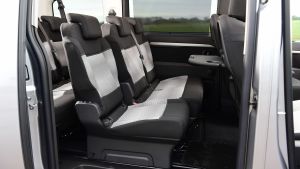
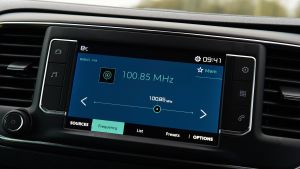
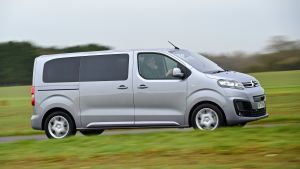
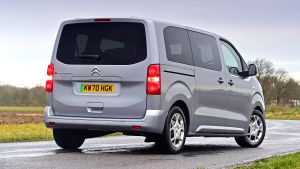
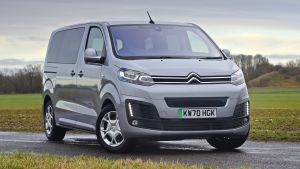
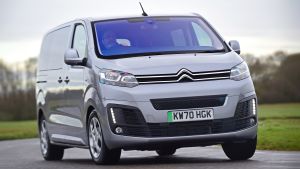
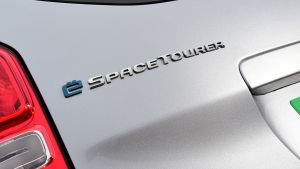
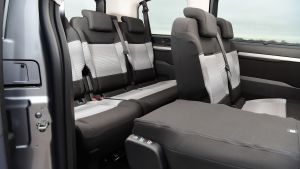
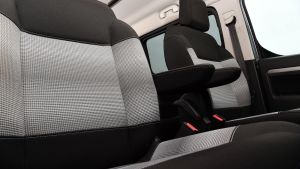
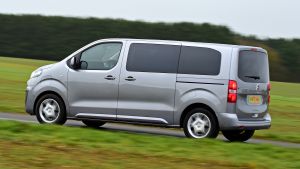
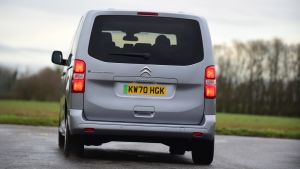
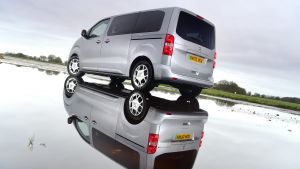
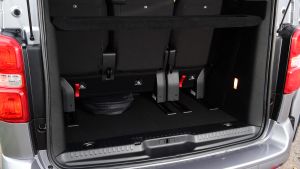
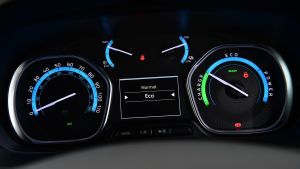
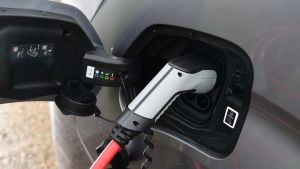
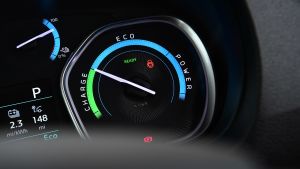
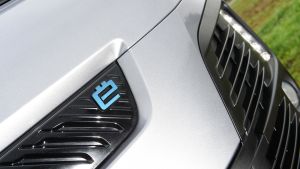
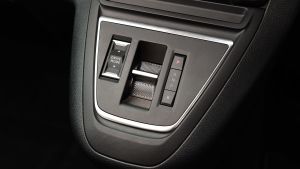
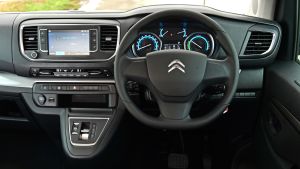
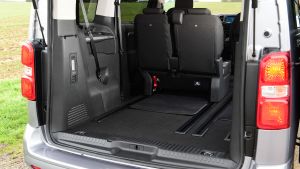
Comments
Post a Comment